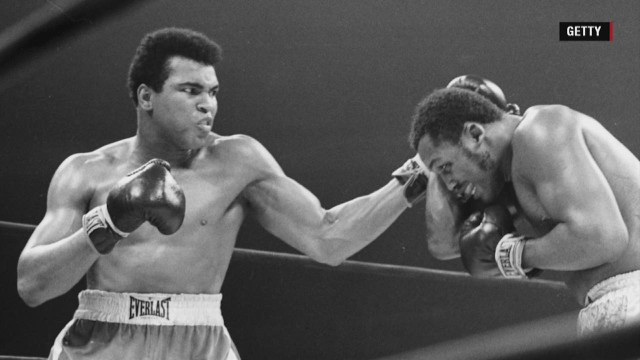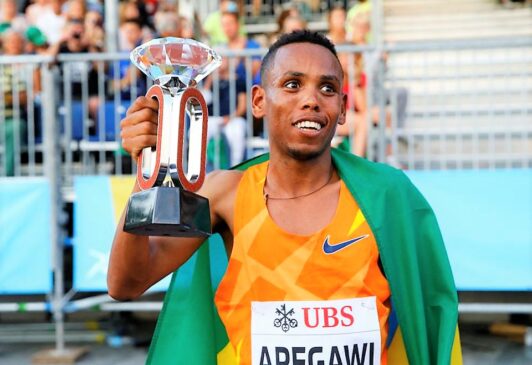Boxing legend Muhammad Ali dies at 74
The 74-year-old sports hero, who had been battling Parkinson’s disease for decades, passed away in a hospital here where he had been admitted earlier this week suffering from respiratory problems.
“After a 32-year battle with Parkinson’s disease, Muhammad Ali has passed away at the age of 74,” spokesman Bob Gunnell said.
“The three-time World Heavyweight Champion boxer died this evening.”
Funeral arrangements for Ali would be announced on Saturday, he added, with the champion to be buried in his hometown of Louisville, Kentucky.
Ali had been living in the Phoenix area with his fourth wife, Lonnie, whom he married in 1986. He was survived by nine children, seven daughters and two sons.
As the family gathered at his bedside on Friday, concern for Ali had grown.
Upon his death tributes immediately poured in for “The Greatest,” who was known globally not only for his storied ring career but also for his humanitarian activism.
US President Barack Obama, who said he keeps a pair of Ali’s boxing gloves and a photo in his private study, hailed the late boxer for his civil rights work.
“His fight outside the ring would cost him his title and his public standing. It would earn him enemies on the left and the right, make him reviled, and nearly send him to jail. But Ali stood his ground. And his victory helped us get used to the America we recognise today.”
He was, Obama said, “not just as skilled a poet on the mic as he was a fighter in the ring, but a man who fought for what was right. A man who fought for us.”
Longtime boxing promoter Bob Arum said “Ali transformed this country and impacted the world with his spirit. His legacy will be part of our history for all time.
“He is, without a question in my mind, the most transformative person of our time,” Arum said.
Ali had been hospitalized multiple times in recent years.
In 2014 he was treated for a mild case of pneumonia and again in 2015 for a urinary tract infection.
His Parkinson’s, thought to be linked to the thousands of punches he took during a career studded by bruising battles inside the ropes, had limited his public speaking.
But he continued to make appearances and offer opinions through his family members and spokespeople.
In April, he attended a Celebrity Fight Night Dinner in Phoenix that raised funds for treatment of Parkinson’s.
In December, he issued a statement rebuking US presidential hopeful Donald Trump’s call for a ban on Muslims entering the United States.
‘THE GREATEST’
Ali’s 30-year career, which stretched from 1960 to 1981 and saw him retire with a record of 56-5, included such historic bouts as the Rumble in the Jungle against George Foreman.

Don King promoted that watershed bout in Kinshasa, Zaire, in 1974, in which Ali used his “Rope a Dope” strategy to best Foreman and become just the second fighter ever to regain the heavyweight world title.
“His spirit will go on forever,” King said of Ali. “He represents what every athlete and sports person tries to do, an attitude of getting it done, success, he was fabulous.
“A great human being, and a champion of the people. The greatest of all times.”
Other defining moments of Ali’s career included two knockouts of Sonny Liston and his thrilling rivalry with Joe Frazier – which saw the two men slug it out in the ring and verbally spar out of it.
“Ali, Frazier & Foreman, we were 1 guy. A part of me slipped away – the greatest piece” Foreman wrote on Twitter shortly after Ali’s death was announced.
Former heavyweight champion Mike Tyson added: “God came for his champion. So long great one. @MuhammadAli #TheGreatest #RIP.”
Ali, born Cassius Marcellus Clay Jr in Louisville, Kentucky, dazzled fans with slick moves in the ring, and with his wit and engaging persona outside it.
His refusal to serve in the Vietnam War saw him banned from the sport for years, but the US Supreme Court overturned his conviction for draft dodging in 1971.
He took the name of Muhammad Ali after converting to Islam in 1964, soon after he had stunned the sport by claiming the title with a monumental upset of Liston.
He was vilified in some quarters for that conversion and his outspoken stance on Vietnam and civil rights issues. His refusal to fight in Vietnam saw him prosecuted for draft evasion, and led to him being effectively banned for boxing for three years of his prime.
But he held firm to his beliefs and eventually earned accolades as an activist.
He received the highest US civilian honour, the Presidential Medal of Freedom, in 2005.
Ali represented the United Nations as a messenger of peace and was chosen to light the Olympic torch in 1996, when he was already weakened by Parkinson’s.
‘A GIANT’
Tributes flooded in from around the world – celebrities, politicians, reporters that covered him, athletes and of course boxers praised Ali for his superb work in and out of the ring.
Floyd Mayweather, who retired from boxing last year with a perfect 49-0 record, recalled the awe he felt in meeting Ali in ’96, when he was a US Olympian.
“I didn’t really know what to say. I couldn’t believe it,” Mayweather said. “I didn’t even want to show my true feelings and emotions of how I felt.”
Twenty years on, Mayweather was clear on his view of Ali’s legacy – forged inside and outside the ring.
“Never be afraid,” Mayweather said. “Never stop believing. And never settle for less.”
Mayweather’s great rival Manny Pacquiao of the Philippines said the world had lost “a giant”.
“Boxing benefitted from Muhammad Ali’s talents, but not as much as mankind benefitted from his humanity,” Pacquiao said.
British Prime Minister David Cameron praised Ali on Twitter as “a champion of civil rights, and a role model for so many people,” while India’s Narendra Modi said he was a “source of inspiration who demonstrated the power of human spirit & determination.”




